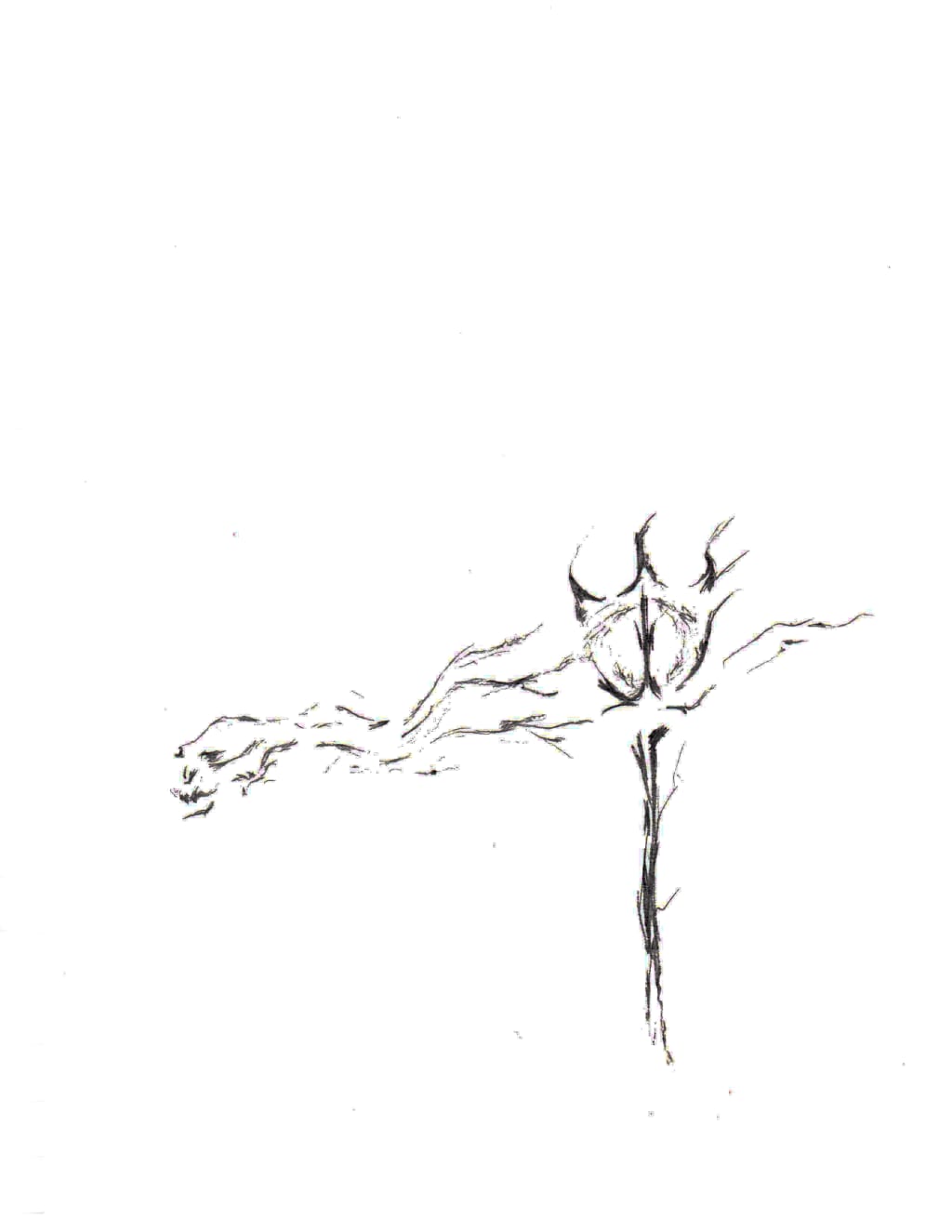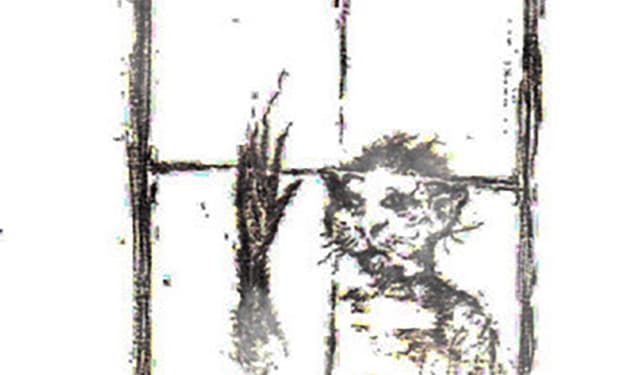
In the quiet country village of Anoch there is a superstition of an unusual sort.
Its origin is not that of man or beast, but rather it is set in the eerily lit lamps that line the worn cobblestone streets. In Anoch the lamps burn brightly. So brightly in fact, they can be seen night or day. And they burn all hours, too. For no one dares to try to put them out. At least, not yet.
It was in the summer of 1856 that I came to Anoch. For, the prospects of business brought me here to meet with my friend, whose personal recreations had inspired new aspects of his professional endeavors that now, according to him, complimented mine. The meeting was to occur at a place nostalgic of our past and a time where the hands of the clock would vanish from its face. 20:00. The time seemed almost inappropriate for its purpose, but I knew of my friend’s motives, and I was not about to suggest otherwise.
So, to the time I agreed and set out to Anoch by means of carriage upon a rough and deliberate road across countrysides painted in mysterious hues.
The wind snaked its way through amber blades, whispering things understood only by ancient ears. From inside the coach these observations brought a tranquility that distracted from the creaks and groans of my aging transport as it protested the path upon which it tread. Despite the inconvenient condition of a neglected road, the trip was rather pleasant, opting me to entertain my mind with all sorts of wild and exciting conclusions drawn from the correspondence I had received from my friend not a week before. I held the letter in my hand and re-read it with the aims of deciphering what secrecies might be held within its words. He was always like that, my friend. Keeping all sorts of meetings and events shrouded in secrecy, as if every outing was concealed in conspiracy. His mind was of an imaginary sort, keeping me in suspense as to his reasons for my summoning. It was never ill-willed or harbored the potential to be harmful. Part of the excitement of our meetings was manifested in the process preceding them. Part of me cherished his unique way in friendship, and another lamented it. I fear that his adventurous means of friendship, however, may have shed several years off my life in the stressing of what might be. In preceding occasions it was always pleasure. This time it was business. Unprecedented. Between us, business had been merely a mention of the elements of each one’s lives. Now, these elements could merge, maybe would merge. Maybe change everything. The letter gave no clue other than expressing an excitement that I had never seen expressed by my friend before. Something I had to journey to Anoch to find out.
With my head full of mystery and intrigue, I folded the letter up and carefully slipped it into my pocket.
As the coach ambled over the last amber hill, Anoch appeared. Settled within the valley, it stood as a sentiment to simpler, secluded living. Anoch was truly isolated. Hidden within the valley on all sides, it presented a prize at the end of a maze of valley and plain. Its perimeter was but scattered stones that seemed to organize, forming into roadways that segmented and branched off into arterial pathways that led to vital ends. Buildings stood few and far in between of town homes that dominated every street and walkway. Below many of these homes were shops and cafes, no doubt owned by those who occupied the quarters above them. The buildings vacant of adjoining residence were several pubs. This allowed them to open late and accommodate all sorts of boisterous goings-on without concern of disturbing surrounding residents of their slumber.
At the time of my arrival the streets were alive with the hustling of villagers eager to complete their tasks at hand. The men walked in considerable stride to make their most important appointments. They were dressed for such importance, as well. They wore suits of somber hues; faded blacks and charcoal grays. The women, too, were draped in equally depressing shades. Their dresses and bonnets seemed covered with a layer of past, worn and beaten by the slow, unrelenting hands of time. Still, both seemed completely content in their conditions and went about their ways.
My business here in Anoch was to meet my friend and seek conclusion to his enigmatic correspondence. But that was later. Right now, my business was to check in to the Euphin Hotel. I was to meet my friend at the Archer Pub. That was nearly three and a half hours from now. I sought to refresh myself through sleep and bath first; amenities I had been absent of for nearly a week now. This was an inviting thought indeed, and so in my excitement I peered beyond the curtain and frame of the coach’s window to see where we were.
Far off in the distance, but not beyond my range of sight, I noticed the Euphin. Its words, etched within the stone of its masonry, stood out as a beacon. Then something else caught my eye; the streetlamps. They were lit. Glowing in gentle hues of blues and greens, they lined the main street leading to the hotel. It was nearly two in the afternoon and the day was at its brightest as the sun shone down from empty skies. And they were lit. What was stranger than their colors were how brightly they shined. As piercing as a rapier, they captured my attention and wouldn’t let go. Oddly, no one on the streets seemed to pay them even a glance. Just how long had they been lit, and why did they shine so brightly during the day? This perplexed and ensnared my mind until the halt of the coach and the swing of its door released it.
The Euphin Hotel stood as a sacrifice to time and age. But five stories, its stone walls played host to a number of ivy, most of which was of a unique red and climbed and hung in no specific order. And their stalks were of a thickness that permitted a worthy climb, if one so desired. From segmented cracks within the stone they jetted outwards and reached upwards towards rain and sunlight. The windows were of a glaze that wore a color of sentiment. Shutters, too, rested on rusty hinges and bore a color of red that was uniform with the ivy’s leaves. An occasional wind whistled through the spaces of wood. They broke the stillness of the air as they creaked in response to the gentle push of the wind.
I stood outside for but a minute to savor this living, breathing history before I walked inside.
“May I help you sir,” the desk clerk announced as he acknowledged my arrival into the lobby. His voice was of an unearthly baritone.
He was tall and lean and was dressed dapperly. His eyes were stale to match the expression on his voice and his hair, receding under his cap, streaked silver with black threaded in between. He stood there, looming over the desk; a monument to a long, hard life.
“Yes, I would like a room, please.”
“Of course, sir. May I have your name?”
“Styles, Donovan Styles.” I gave him the information and he scratched my name on the ledger.
“What room or suite would you like to check into, sir?”
“A single would be adequate.”
My attention, momentarily diverted from this statuesque man by an abrupt commotion outside the lobby’s window, was re-asserted by the sharp clap of brass upon oak.
The key, pinned under dry, cracked hands of monstrous magnitude, scraped along the wood towards my reach. I grabbed it, eyes fixed on his.
“Thank you.” I smiled awkwardly.
The clerk only slightly nodded courteously, eyes unmoving from mine.
As I reached the stairs, my ascent was interrupted by a great bellow.
“Second floor sir,” the clerk said, still frozen in position.
“Thank you,” I murmured under my breath.
“You’re welcome, sir.”
For a second time my ascent was interrupted by this bellow. The first time it sent chills through my spine. And the second was no better. After that reaction, I shook it off, turned with the stairs and came upon a long, straight hallway that was dusty and noisy with age. As I stepped onto it, creaks and groans arose from aging planks that protested my weight. They sounded like the desk clerk. And that too made me uneasy. Perhaps he was as old as this building. Or older. However, this was not my concern, as I was looking forward to settling in for a well-deserved rest.
I looked at the brass key tag and read the room number.
6.
I walked down the hallway and read the doors as I passed. Room one, room two, room three… I came to my room and slid the key into the keyhole. The fit seemed tight. I couldn’t turn it. The lock wasn’t working. Then it came to me. I turned the tag around.
Room 9.
I proceeded to it and tried the lock again. It clicked and I opened the door and entered the room.






Comments
There are no comments for this story
Be the first to respond and start the conversation.